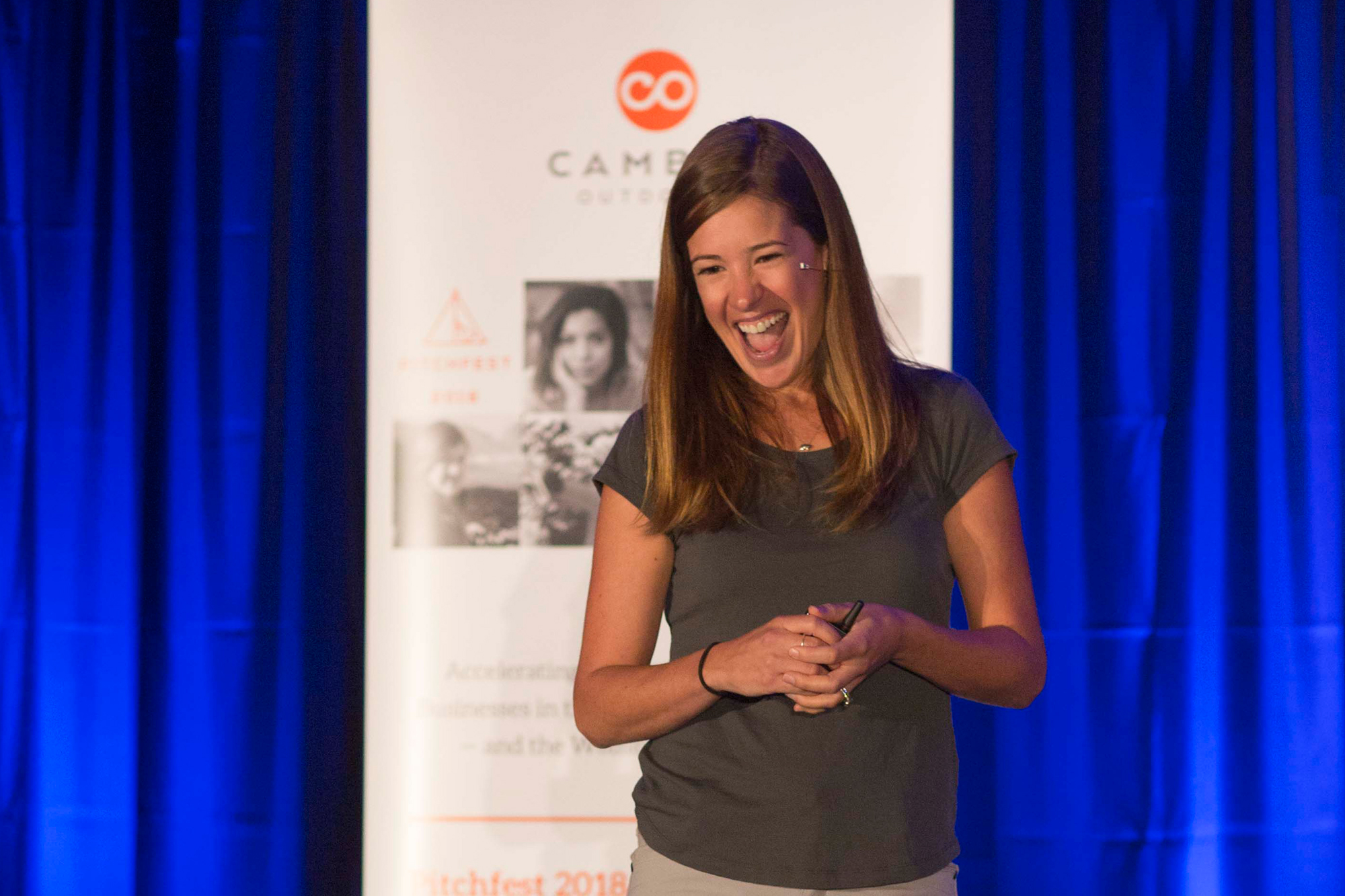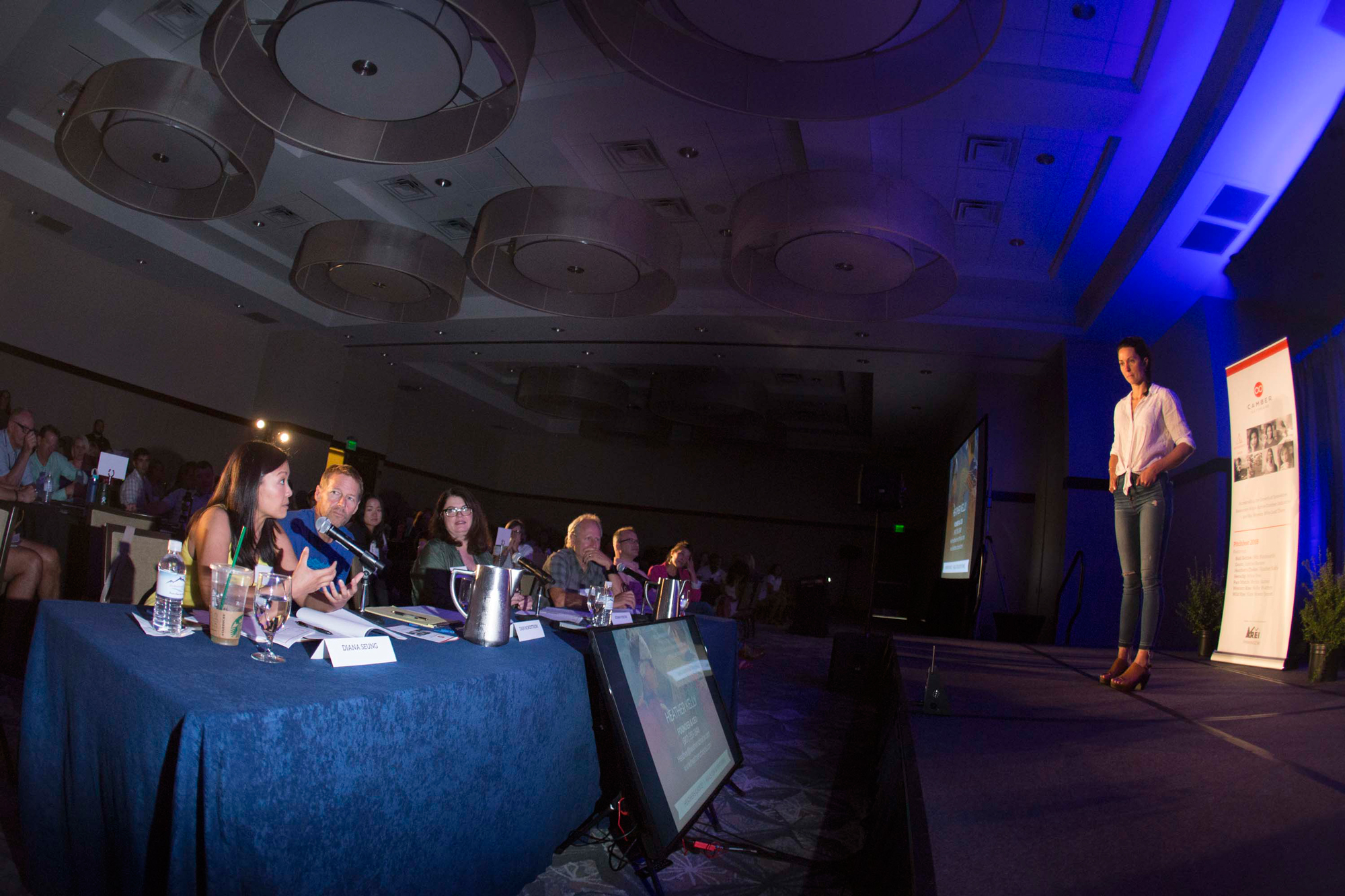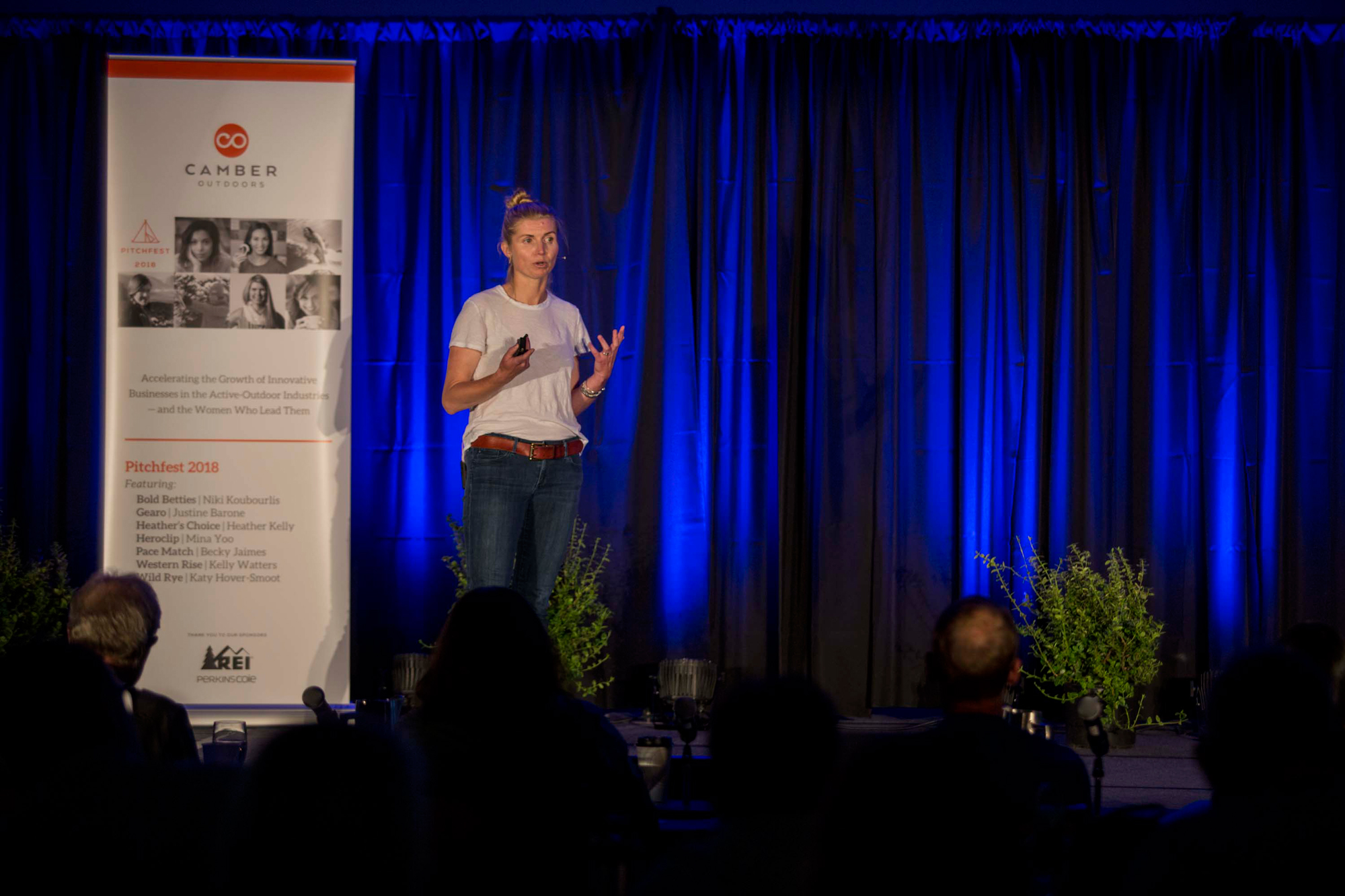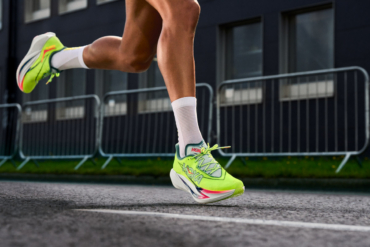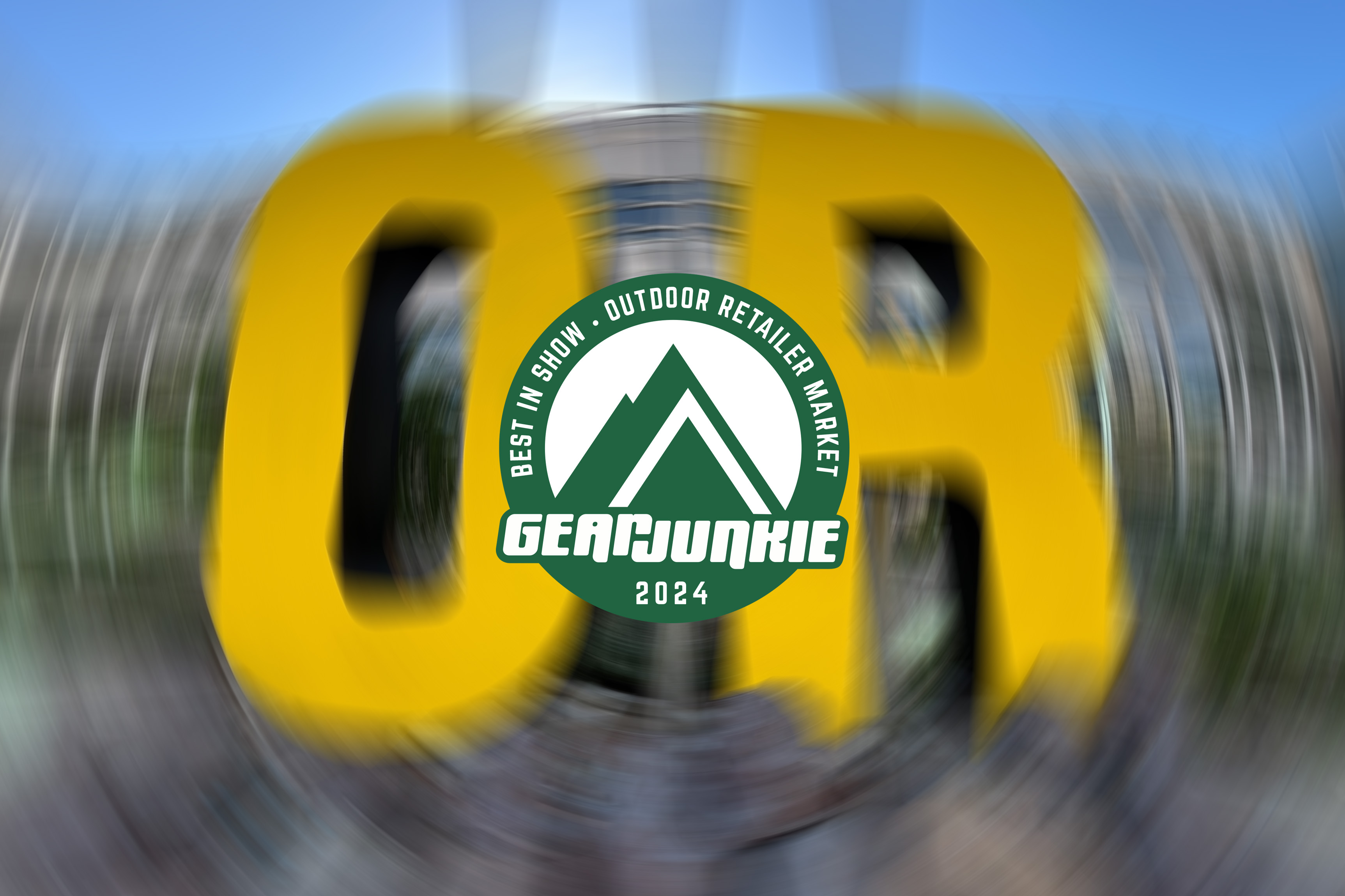Emerging female-founded outdoor brands competed in Camber Outdoors’ fourth annual Pitchfest on Sunday. And while no single company was selected winner, they all nabbed a lot of free advice and exposure to potential investors.

Seven passionate businesswomen pitched their top ideas to a group of potential investors at Pitchfest. The Denver event coincided with Outdoor Retailer, which meant these small businesses were in the company of brands and investors that could fund their next steps.
The products and services — all geared toward the outdoor market — included a re-envisioned carabiner for everyday life, a digital platform for mom-and-pop gear-rental shops, and a work-to-play technical apparel company.
Pitchfest is the brainchild of Camber Outdoors, a Boulder-based organization that’s working on to accelerate equity for all in the outdoors.
This year there were 60 applicants from across the country. Seven companies made it to the finals in Denver. There was no winner. But selected businesses got an opportunity to bend the ears of industry greats a la “Shark Tank.”
Plus, Camber and partners have provided all finalists with legal services, memberships in Outdoor Industry Association and Camber Outdoors, and consultation on brand, marketing, design, and communications.
The finalists included:
- Bold Betties: National chapter-based meetup groups for women to explore the outdoors together
- Gearo: Digital outdoor gear-rental and sales platform
- Heather’s Choice: Healthy, gluten-free dehydrated meals and snacks for adventure
- Heroclip: Hybrid gear clip with a built-in hook and 360-degree rotation
- Pace Match: Digital tool for connecting runners and cyclists on the same paths at the same pace
- Western Rise: Everyday performance clothing that transitions from work to play
- Wild Rye: Premium women’s mountain bike and ski softgoods
Pitchfest Judges
Each company had about five minutes to articulate its business opportunity, challenge, and big asks. Most presenters made a compelling argument for needing funding as well as advisory help in areas like scaling, enterprise software, and marketing.
A panel of judges had seven minutes to ask each presenter questions and provide feedback. The evaluators were two women, both in merchandising from retailers Backcountry.com and REI, and two men, longtime industry players from Outdoor Research and Roundhouse Collective.
Different Businesses, Different Challenges
Each Pitchfest finalist had a different business challenge. Pace Match, for example, is already integrated with Strava but hasn’t been able to convince the fitness tracker to license its algorithm.
“I coded it myself,” said Pace Match founder and mathematician Becky Jaimes. That wasn’t enough. Plus, Strava could rip off her hard work if it wanted to break ties. Pace Match needs an enterprise model — a way to create monthly recurring revenue.
Bold Betties already has that with its new $10/month plan. The membership includes meetups with outdoorsy women nearby, plus incentives like 10 percent off the cost of adventures and 20 percent off affiliated products the brand sells through its website.
Bold Betties already reaches 42,000 women through almost 40 chapters. To hit a goal of 1.5 million members by 2022, the company is poised to scale. It also needs to work on quality control for its chapter leaders. And Outdoor Research made a verbal commitment to help at the Pitchfest event.
On the product side, Heather’s Choice is a direct-to-consumer brand of high-calorie dehydrated foods. The hunting community is already a big fan. The company grew 526 percent between 2015 and 2017 alone, which created a fulfillment nightmare. But the backcountry food business has raised nearly $1 million. It also has key backing from Alaska, where the food product was born and is made today.
But at $15 per package, it’s expensive, as one judge noted. With a new USDA certification underway, those costs could come down. But is it soon enough? And can Heather’s Choice serve new wholesale customers, a category that has doubled in the last three months?
Innovation: Outdoor Products vs. Services
Gearo wants to become the Kayak.com for outdoor gear. It has a huge idea, but only 15 vendors have actually signed up.
Yet the market is ripe. Founder Justine Barone said 70 percent of the vendors she’s talked to still use either an Excel spreadsheet or pen and paper to track gear rentals. But her plan to go door to door for sales is time-consuming. She needs enterprise software help, one judge pointed out.
On the other hand, for a single product, Heroclip — an innovative three-in-one clip, swivel, and hook — is killing it in online sales and is sitting on an $890,000 seed investment. But the niche clip might cap out, said the judges.
They asked founder Mina Yoo about her plan. She’s considering different markets. She said, “We started with the outdoor industry because these people love their gadgets and their quality. They become evangelists for the product.”
In the short term, Heroclip needs more co-branding partnerships, like the one it started with Luci Lantern. The branded clip holds the branded light. In the long term, Yoo could use more marketing and a strategic vision for going after the travel, home, parents, and handbag sectors.
Much like Heroclip, Wild Rye is banking on its cult customer following. Women rave about the fit of the brand’s mountain bike shorts and layering pieces. But when Wild Rye tried a wholesale test, it couldn’t get REI product fast enough.
That’s a huge challenge, but athleisure is an upward-trending $48 billion market. It remains to be seen if Wild Rye can hold onto its direct-to-consumer dream and still be successful.
For all these small women-owned businesses, it may be a wild ride. We’ll see if their Pitchfest pleas are enough to go the distance.
